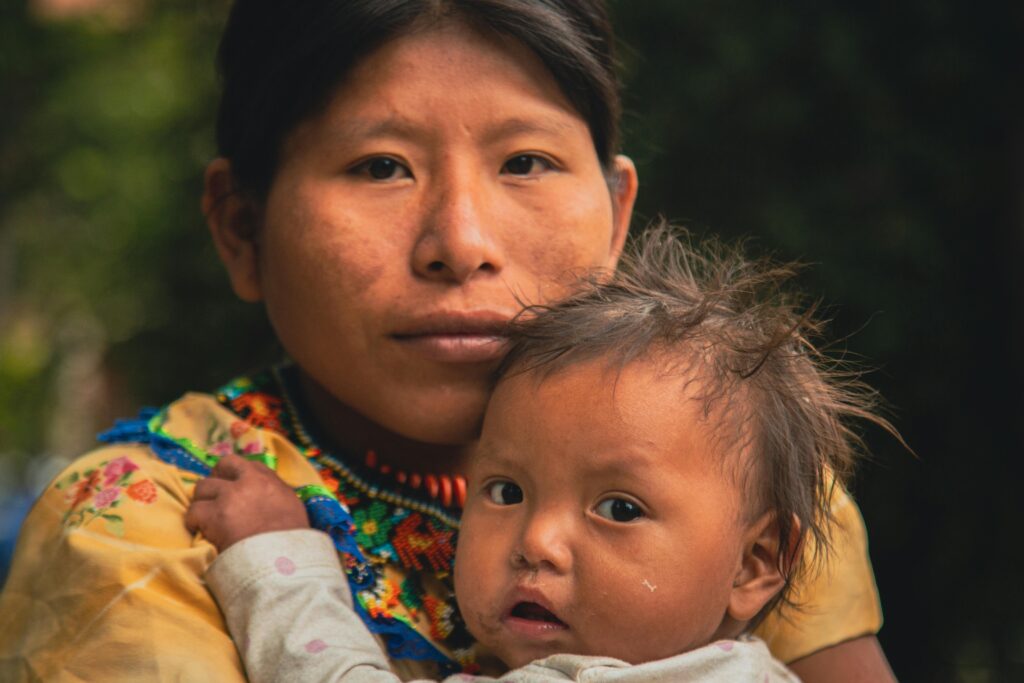
Photo by Luna Andrade Arango
More than 100 leading health organisations across Latin America and the Caribbean have united behind a common position for COP30, calling for climate action grounded in justice, equity, and wellbeing.
By Fransisco Chesini – Iberoamerican Society for Environmental Health & Milena Sergeeva – Global Climate and Health Alliance
As the world prepares for COP30 in Belem, Latin America and the Caribbean are once again in the global spotlight. Over the last three decades, the region has hosted five of the 29 UN Climate Change Conferences – in Buenos Aires (twice), Cancun, Lima and Santiago (the latter ultimately moved to Madrid in 2019). Now, the return of the COP to Latin America provides a historic opportunity to make one message impossible to ignore: the climate crisis is a health emergency.
From COP25 to a Regional Movement
Although COP25 could not take place in the region, it planted an important seed – the creation of the Climate and Health Network for Latin America and the Caribbean, formally established in 2021. Convened by the Global Climate and Health Alliance (GCHA), the network now brings together more than 40 organizations united by a single goal: to amplify the voice of the health and climate community across the continent.
The upcoming COP30 offers a unique moment to demonstrate how far that movement has come. The Network has worked collectively to develop a Common Position on Climate Change and Health, representing the shared priorities of the region’s health community. It is both a statement of unity and a roadmap for action.
A Collective Process Across Languages and Borders
The development of the Common Position began in March via a participatory process. Four online consultations were held with organizations across the region, conducted in Spanish, Portuguese and English to reflect the region’s linguistic diversity. Participants helped prioritize themes to be included, establishing a collaborative writing methodology, and iteratively revising the draft, based on an enriching dialogue of knowledge across disciplines and territories. Hundreds of comments were received and incorporated into the text, creating a ‘polyphony of voices’ – testament to the region’s diversity and shared determination to act.
The field of health is inherently interdisciplinary, and so too was this process. Different approaches, such as Public Health, Environmental Health, Planetary Health, Mental Health, Family Medicine, and Pediatrics, as well as complementary emphases such as youth, policy, research, education, and the right to health, have informed this Common Position. The signatory organizations come from academia, medical professional associations, non-governmental and human rights organizations, as well as intergovernmental and humanitarian organizations.
A Regional Call for Health, Justice and Climate Action
In just four months, the group produced a comprehensive document grounded in the realities of the region including its demographic, epidemiological, economic, habitat, health, ecological, energy, and cultural contexts. It highlights that, despite being a region rich in biological and cultural diversity, Latin America and the Caribbean (LAC) exhibits high levels of inequality and poverty, making it more vulnerable to climate change.
The Common Position is structured around six principles:
- Health protection and response to the impacts of climate change
- Climate change mitigation with health benefits
- Climate justice and equity
- Adaptation and resilience
- Climate leadership in the health sector: Education, action and governance
- Climate and health financing
Without attempting to summarize the full text, which deserves careful reading, six overarching priorities stand out:
- Integrate health and equity into all national and local climate plans.
- Promote a just and healthy transition, respecting human and territorial rights.
- Strengthening health systems and community resilience to climate risks.
- Protecting biodiversity and ancestral knowledge as part of defending health.
- Increase equitable climate finance and ensure it reaches communities.
- Rebuilding trust through transparent cooperation, scientific evidence, and solidarity.
The Common Position was presented and officially launched at the Climate Change and Health Conference in Brasilia on July 29th. Since then, it has been disseminated through political and technical forums across the region, accompanied by letters to health, environment, finance and foreign affairs ministries urging their delegations to reflect its priorities in Belém. The culmination of this process will be the presentation at the COP30 Health Pavilion as a unified voice from the Region demanding climate action with justice, equity and health at the center.
A Turning Point for Regional Climate Leadership
The development of the Common Position marks a turning point for climate action with a health focus in the region. It lays the groundwork for a regional health and climate agenda that could be consolidated through decisions in Belém.
The Common Position envisions health integrated across all negotiation tracks, the adoption of the Belém Health Action Plan, championed by the COP30 Presidency, and looking beyond Belém – new inter-ministerial cooperation mechanisms, and stronger institutional and community capacities to respond to climate threats. It also opens pathways for strategic alliances with multilateral and financial institutions to direct resources toward projects that deliver co-benefits for health, equity and resilience. Above all, it reflects a growing regional movement for climate and health justice, one that positions Latin America and the Caribbean as a global leader in integrated, evidence-based and solidarity-driven climate action.

